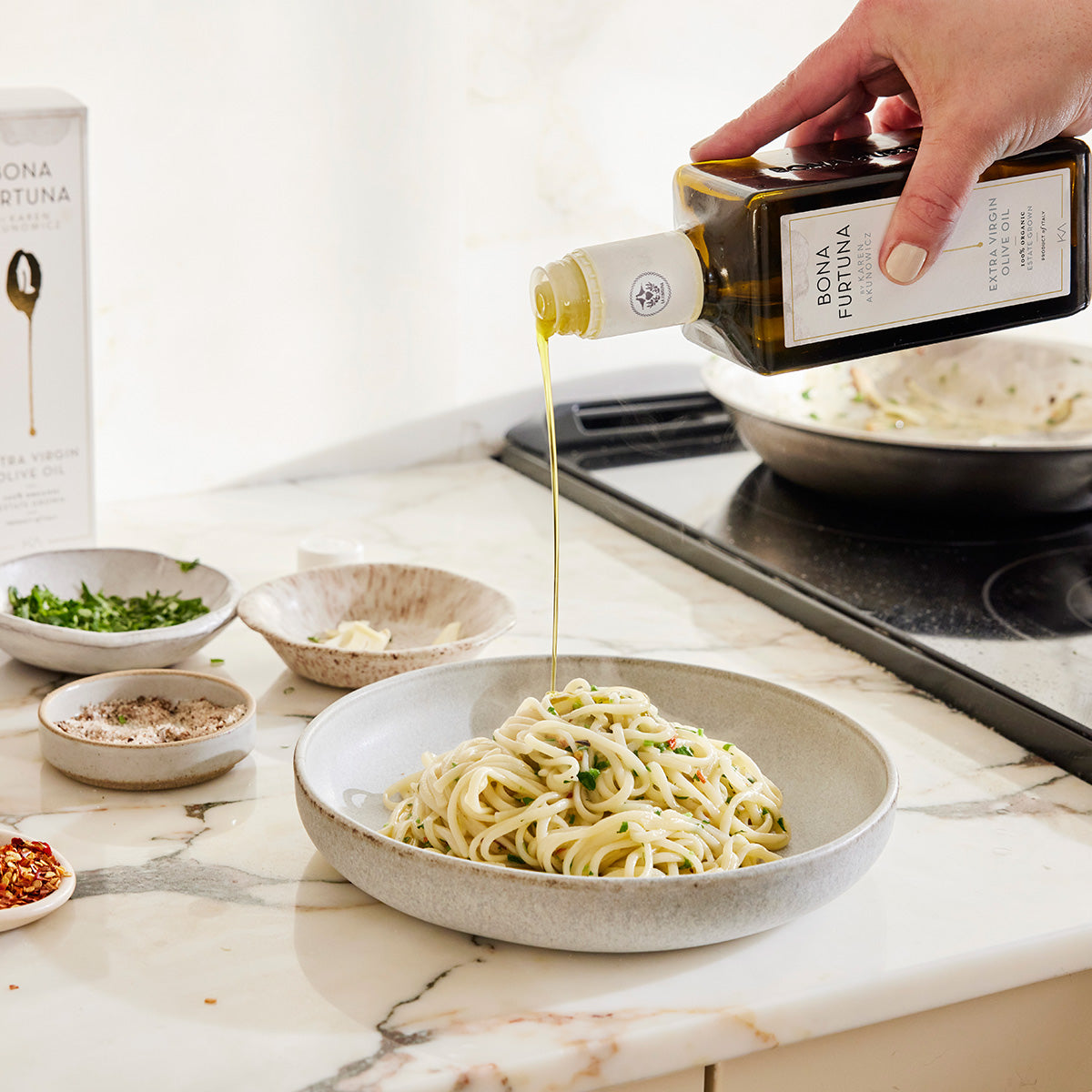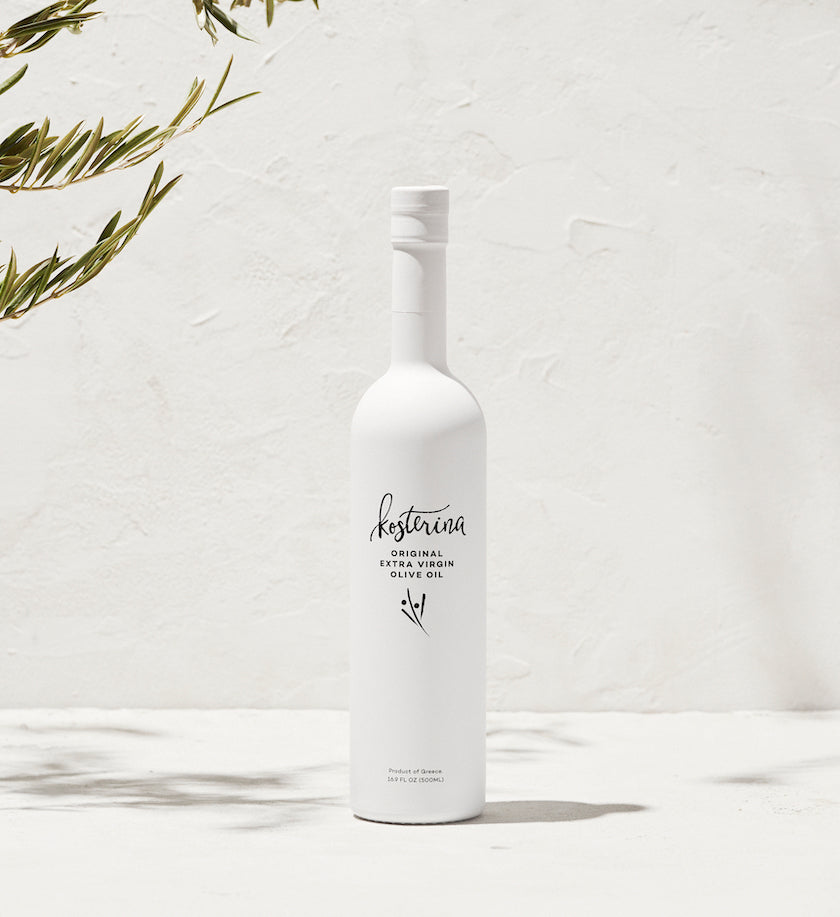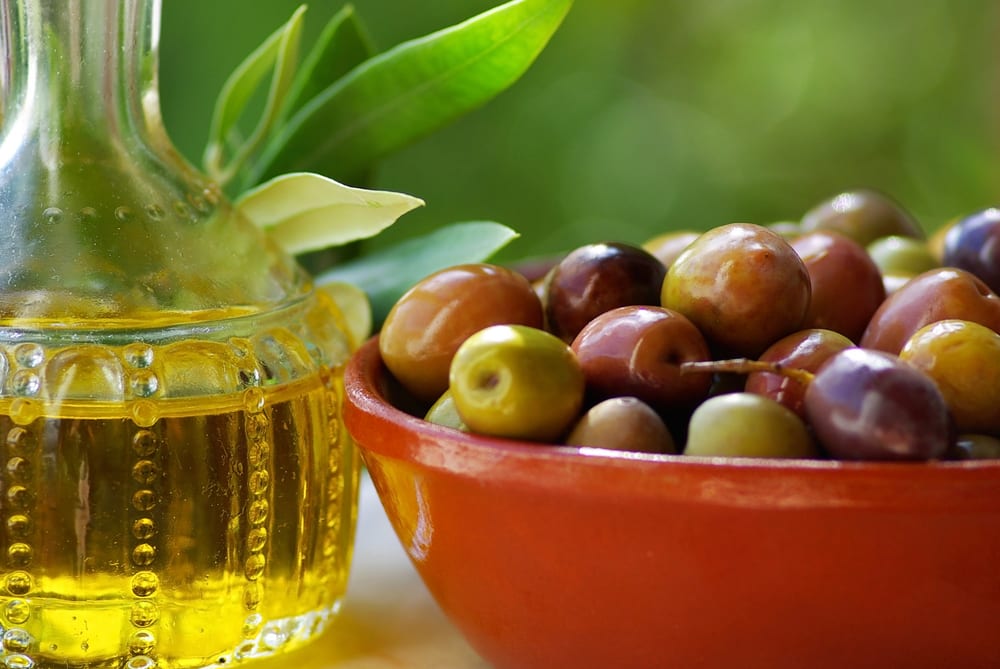Extra Virgin Olive Oil Benefits: How It Supports Healthy Cholesterol Levels
Extra Virgin Olive Oil Benefits: How It Supports Healthy Cholesterol Levels
Blog Article
Checking Out the Various Kinds of Olive Oil and Their Usages, Including Extra Virgin Olive Oil
The exploration of olive oil incorporates a diverse array of kinds, each offering unique tastes and cooking applications. Bonus virgin olive oil, renowned for its superior high quality and health and wellness benefits, works as a staple in numerous kitchens, yet it is just one element of this diverse component. extra virgin olive oil benefits. Various other varieties, such as pure and refined olive oils, likewise necessitate attention for their one-of-a-kind residential properties and usages. Recognizing these differences can significantly affect both food preparation techniques and taste profiles. What, then, should one take into consideration when picking the appropriate olive oil for a details cooking venture?
What Is Olive Oil?
Stemmed from the fruit of the olive tree, olive oil is a staple in Mediterranean food and an essential component in numerous cooking applications. This flexible oil is generated by pushing whole olives, resulting in a fluid that differs in fragrance, color, and flavor relying on the type of olives used, the region of growing, and the removal process. Olive oil is mostly composed of monounsaturated fats, especially oleic acid, which is recognized for its possible health and wellness benefits, consisting of anti-inflammatory residential or commercial properties and cardio support.
Along with its culinary uses, olive oil has a long background of application in conventional medicine and skin care, owing to its rich antioxidant material (extra virgin olive oil benefits). The oil is commonly used in dressings, sauces, and for cooking approaches such as sautéing and roasting. Its distinct flavor account can boost the taste of different meals, making it a crucial ingredient for both home chefs and professional chefs
Additionally, olive oil is commemorated for its function in the Mediterranean diet plan, which is connected with various health and wellness benefits. As understanding of these advantages grows, olive oil remains to gain popularity worldwide as an essential part of a healthy and balanced lifestyle.
Kinds Of Olive Oil
Understanding the different types of olive oil is essential for both health-conscious customers and culinary enthusiasts. Olive oil is categorized mostly based upon its removal approach and high quality, which dramatically affects its taste, health and wellness, and aroma benefits.

Light olive oil, in spite of its name, refers to a lighter taste and not lower calories. It is ideal for those looking for a more subtle preference in sauces and dressings. In addition, there are flavored olive oils instilled with natural herbs, seasonings, or citrus, which can boost recipes without the need for added seasoning.
Each kind of olive oil serves particular cooking functions, and comprehending these differences permits consumers to make enlightened selections that align with their cooking styles and health and wellness objectives.
Extra Virgin Olive Oil
Bonus virgin olive oil (EVOO) is extensively considered as the finest olive oil readily available, renowned for its rich flavor and numerous health and wellness benefits. To be categorized as extra virgin, the oil should be generated from fresh olives using mechanical procedures, without using solvents or extreme heat. This thorough technique preserves the oil's all-natural tastes, antioxidants, and healthy fats, resulting in a product with a low acidity level of much less than 0.8%.
EVOO is abundant in monounsaturated fats, particularly oleic acid, which is linked to minimized swelling and boosted heart wellness. It likewise consists of polyphenols, powerful antioxidants that might use protective effects versus persistent illness. The flavor account of EVOO can vary substantially depending on the olive selection and area of manufacturing, ranging from fruity and verdant to robust and sharp.

Culinary Use Olive Oil

In food preparation, olive oil can be utilized for sautéing, toasting, and cooking, giving a much healthier option to butter or other fats. Its high smoke factor makes it suitable for various cooking approaches, while its antioxidants add to a heart-healthy diet plan. Sprinkling olive oil over ended up meals, such as pasta, fish, or barbequed vegetables, can elevate flavors and include a touch of sophistication.
In addition, olive oil plays a substantial duty in baking, where it can replace standard fats in dishes for bread and pastries, giving wetness and a refined taste. It likewise serves as a base for instilled oils, enabling cooks to explore tastes such as garlic, herbs, or chili, additionally increasing its cooking capacity. Overall, olive oil's flexibility makes it vital in both home and specialist kitchen areas.
Choosing Quality Olive Oil
When selecting quality olive oil, it's vital to take into consideration a number of crucial variables that influence the product's health, scent, and flavor advantages. Most importantly, opt for additional virgin olive oil (EVOO), which is stemmed from the very first cool pushing of olives and includes the highest levels of anti-oxidants and useful substances. Try to find oils that are accredited by recognized companies, as this often guarantees adherence to strict top quality criteria.
The packaging also plays a substantial role in preserving the oil's stability. Pick oils saved in dark glass bottles or tins to protect versus light destruction. Focus on the harvest day; fresher oils provide remarkable taste and dietary worth, so pick products that are within 18 months of their harvest.
Be hop over to these guys conscious of the taste; an excellent high quality olive oil should have an equilibrium of fruity, bitter, and peppery notes, showing its richness and intricacy. By examining these factors, you can guarantee you are picking the finest olive oil for your cooking demands.
Final Thought
In recap, the expedition of numerous kinds of olive oil exposes distinctive attributes and applications, with additional virgin olive oil standing for the peak of high quality due to its reduced level of acidity and high antioxidant web content. Recognizing the different ranges of olive oil permits for educated options in cooking techniques, promoting much healthier techniques while enriching the general gastronomic experience.
Acquired from the fruit of the olive tree, olive oil is a staple in Mediterranean cuisine and a vital component in different culinary applications.The most common kinds of olive oil include improved olive oil, pure olive oil, and light olive oil.Extra virgin olive oil (EVOO) is extensively concerned as the greatest high quality olive oil offered, renowned for its rich flavor and numerous wellness advantages. Opt for added virgin olive oil (EVOO), which is obtained from the initial cold pushing of olives and consists of the highest possible levels of anti-oxidants and beneficial compounds.In summary, the exploration of different types of olive oil exposes distinctive qualities and applications, with extra virgin olive oil standing for the peak of quality due to its low acidity and high antioxidant material.
Report this page